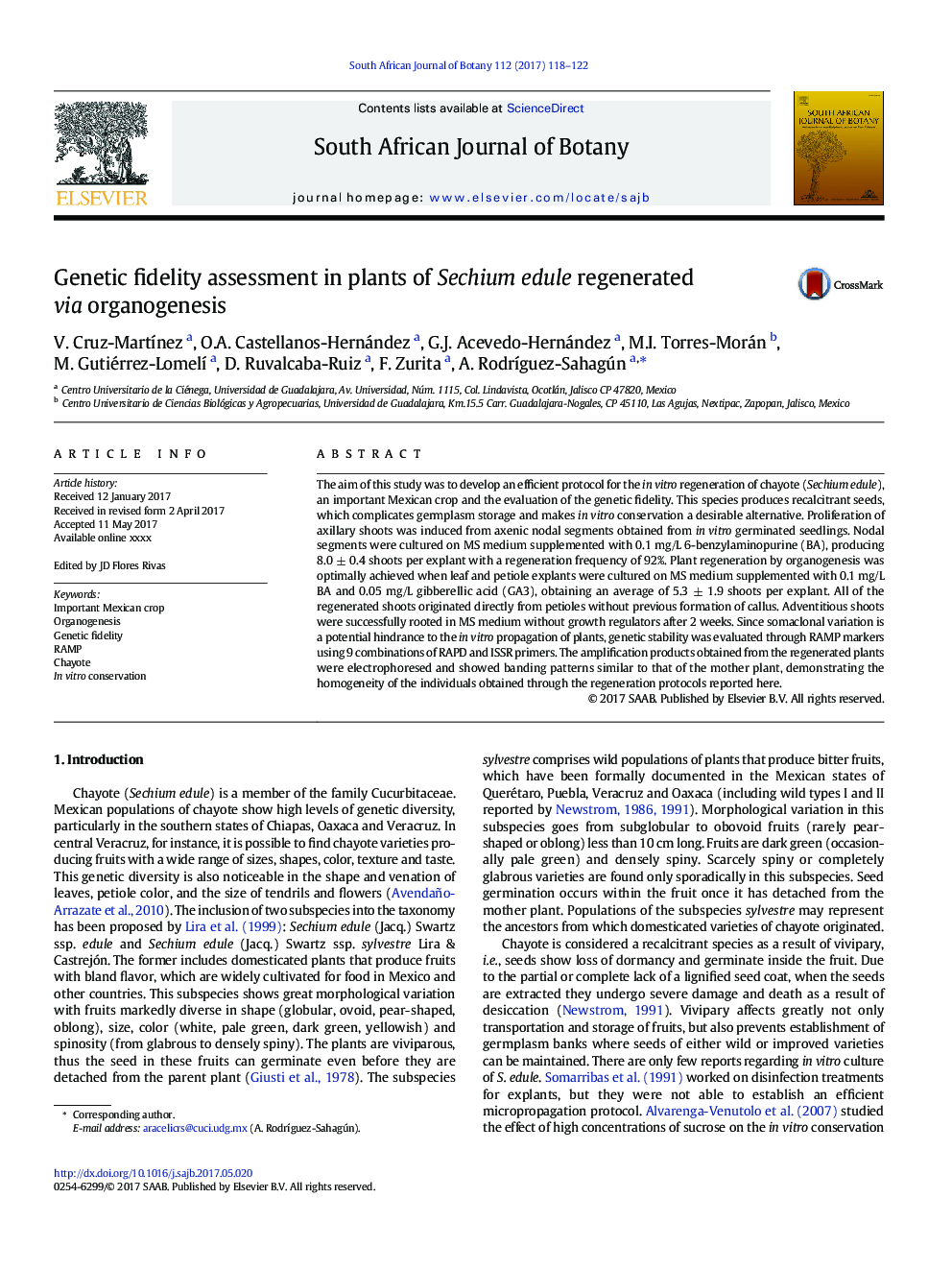| Article ID | Journal | Published Year | Pages | File Type |
|---|---|---|---|---|
| 5763170 | South African Journal of Botany | 2017 | 5 Pages |
Abstract
The aim of this study was to develop an efficient protocol for the in vitro regeneration of chayote (Sechium edule), an important Mexican crop and the evaluation of the genetic fidelity. This species produces recalcitrant seeds, which complicates germplasm storage and makes in vitro conservation a desirable alternative. Proliferation of axillary shoots was induced from axenic nodal segments obtained from in vitro germinated seedlings. Nodal segments were cultured on MS medium supplemented with 0.1 mg/L 6-benzylaminopurine (BA), producing 8.0 ± 0.4 shoots per explant with a regeneration frequency of 92%. Plant regeneration by organogenesis was optimally achieved when leaf and petiole explants were cultured on MS medium supplemented with 0.1 mg/L BA and 0.05 mg/L gibberellic acid (GA3), obtaining an average of 5.3 ± 1.9 shoots per explant. All of the regenerated shoots originated directly from petioles without previous formation of callus. Adventitious shoots were successfully rooted in MS medium without growth regulators after 2 weeks. Since somaclonal variation is a potential hindrance to the in vitro propagation of plants, genetic stability was evaluated through RAMP markers using 9 combinations of RAPD and ISSR primers. The amplification products obtained from the regenerated plants were electrophoresed and showed banding patterns similar to that of the mother plant, demonstrating the homogeneity of the individuals obtained through the regeneration protocols reported here.
Related Topics
Life Sciences
Agricultural and Biological Sciences
Agronomy and Crop Science
Authors
V. Cruz-MartÃnez, O.A. Castellanos-Hernández, G.J. Acevedo-Hernández, M.I. Torres-Morán, M. Gutiérrez-LomelÃ, D. Ruvalcaba-Ruiz, F. Zurita, A. RodrÃguez-Sahagún,
